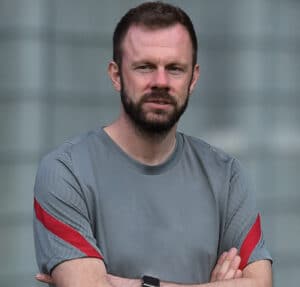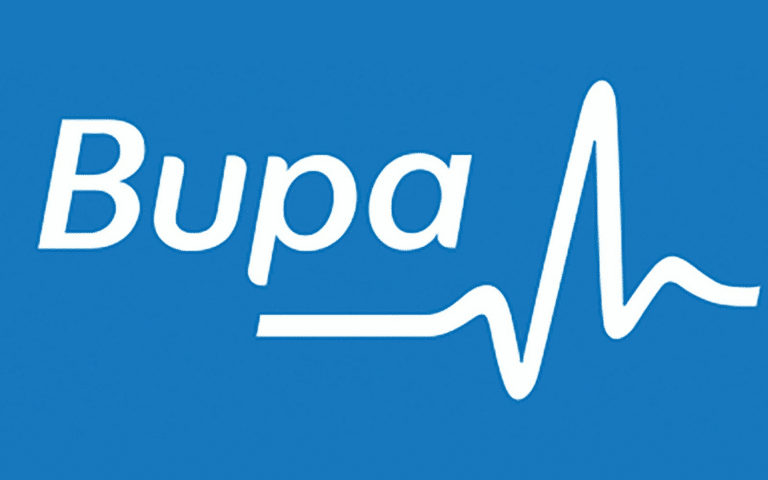My first role at a premier league club was 20 years ago when I had a part-time role in the academy of Leeds United alongside working in the NHS.
Subsequently, I have worked at Manchester City (Academy), Liverpool (twice including currently), Crystal Palace, Arsenal and the FA.
People often reach out to me and ask if I have any advice to make the break into professional sport and so here is my advice to anybody with aspirations of working (and staying) in professional football*
*There will be elements which are transferable to other sports but for this one, we will stick with football specifically as that is my area of experience.
The following are what I consider important factors in both breakthrough (1-5) and longevity (6-10).
- Get experience – easier said than done right. The most important thing you can do is take the step into both observing and more importantly delivering in a sporting environment. Initially, this could be in the form of voluntary work at local clubs at non-league level. You may not have much experience to offer but you will have expertise and enthusiasm. Football clubs at higher levels need Therapists to cover the multitude of matches and training sessions at academy levels and are often on the lookout for new graduates at the start of every season. Clubs will provide training to ensure you can safely deliver and cover matches from an emergency perspective whilst covering clinics and taking rehab sessions will also expose you to acute injury management and return to train and play decision making.
- Learn a language – Football at the highest level is a truly multi-national industry. I can’t stress enough how much of an asset it would be to be able to communicate with athletes in their own language. If I was at the beginning of my career I would absolutely commit to learning a second language (probably Spanish considering the number of Spanish and South American players in the Premier League). It would also open up opportunities to work abroad; not something which happens often and again this is probably due to language barriers. I have worked with a number of colleagues, players and coaches who are comfortable with 4 or 5 languages and the ability to switch between them and fully integrate into various social groups within the training ground is hugely beneficial (and impressive). Get that Duolingo downloaded!
- Be adaptable – the role of therapists within football clubs has evolved greatly during my 20 years in the sport. It is likely that the job role will vary hugely depending on the level you work at, the number of staff and the nationality of the coaching and/or sporting director. In some set-ups, the Physio may be the head of the department and lead on diagnosis/prognosis and communication with the coaching staff. They may lead on gym-based delivery of exercises and rehabilitation or be more treatment room based with a focus on managing issues “on the bed”. Sometimes they may deliver pitch based rehabilitation and so need to be comfortable with end-stage pitch based work. The key is to be adaptable and willing to flex to the demands of the service at any moment in time. What can be seen as best practice under one manager can look very different under another. If you are rigid in what you think a physio should be doing then you are likely to run into issues.
- Add to your qualifications – Physiotherapy degrees are improving in terms of preparing students for the reality of working with sporting populations. But in general, they are still preparing students primarily to work in the NHS. NHS MSK practitioners remain some of the best practitioners I have ever worked with but clearly how a day working in the NHS looks is very different to working in sport. We may all share the same Degree but a little like how we only learn to drive once we have passed our test it’s only once our career begins post-grad that we begin to shape our professional selves. Physiotherapists emerge with fantastic clinical reasoning skills. Our ability to assess and formulate treatment plans and rehab programs (in the presence of pain and pathology) is our strength. We can be much better in our principles of Strength and Conditioning and how we apply these to our process and so courses such as UKSCA https://www.uksca.org.uk/home or MSc level study https://www.ljmu.ac.uk/study/courses/postgraduates/strength-and-conditioning?gclid=CjwKCAjwi6WSBhA-EiwA6NiokxmFVZtyYAzTKjoqYl8asCuzpEi91zH9KbqOCw2GeQ9GRQFfkmVoihoCR3AQAvD_BwE&gclsrc=aw.ds will be a huge asset and set you apart. We need to be good with our hands and have a wide range of treatments up our sleeve, athletes want to get off the treatment bed feeling better than they got on it (and believe me if we don’t provide hands-on treatment they will find somebody who does) and so courses which improve our ability deliver hands-on treatment such as these from OMT https://www.omttraining.co.uk will massively improve our skillset and finally if we want to provide Pitch-side emergency cover then you need to have an appropriate qualification such as ATMMIF https://thebootroom.thefa.com/learning/qualifications/the-fa-level-5-advanced-trauma-medical-management-in-football (you can read more about the run on role in this previous blog – https://rehab4performance.com/the-role-of-the-run-on-medical-team-guest-written-by-chris-morgan/
- Build on online presence – I recently read that the days of CV’s are finished and future employers will gain the majority of information on candidates from social media. I don’t think this necessarily means they will trawl old MySpace accounts for what your thoughts were 15 years ago but I do think it is possible to build a brand for yourself that will reflect well if an employer does do some digging. I have seen people secure some incredible positions on the back of what they have created via social media profiles. People have been willing to put their ideas out there, share information and show a depth of understanding of a subject matter even if they are not currently working within elite football. It’s a little alien for me to even think in these ways (showing my age) but at the same time, I think it’s the reality and the future.
- “It’s not who you know it’s who knows you” – football is often accused of being a job for the mate’s type industry. Without doubt there are occasions when this is the case. Making the right appointment can be a a really difficult process and on an industry where it can often feel like 2-3 bad results can be the end for a manager and coaching team is it any surprise that they will often look to surround themselves with people who they know can do they job they want and trust them to do it. Essentially they don’t feel they have time to risk an appointment that doesn’t work out and instead opt for the certainty of somebody from their closed network. In a more open process of job advertisement, interview and references I prefer to say it isn’t about who you know, it’s about to who knows you! The employer will do due diligence on you as a practitioner and person, with an emphasis for those who will be working closest with you on the “person” aspect. When I worked with Steve Peters he always said that 1 in 5 people won’t like you no matter how hard you try to connect. So if we go off this and say that 80% of any of our previous connections would give us a positive reference in terms of what we are like as people I think that’s a good aim! Football is a very small industry, always assume that the people you are currently working with (including the athletes themselves) are potentially your next set of references and basically, be a good person. For your longevity in the profession players speak with players, sporting directors speak with sporting directors and medical staff speak with speak with each other. Make sure 4 in 5 speak well of you.
- Be authentic – in my early days working in football I had to adapt to the idea that not every player would be “having me”. By that I mean they could be selective, some would prefer treatment or rehab from others and it was difficult as a young professional to not feel quite sad about that! With time you realise it is rarely a personal thing and actually it’s ok if they prefer to see somebody else and should reflect a diverse team with a multitude of personalities and skills which mean the player is able to choose what suits them for a particular issue or problem. In those early days however I would look at other members of staff and think right I need to be good at what they are good at in order to have widespread appeal to every player – which is of course impossible! Instead, be yourself, have personality, be good at what you are good at and maximise your personal and professional skills. Trust takes time to build but athletes will feel when you are authentic and when at the basis of everything you do is the desire to help them to the maximum of your ability. How you do that may be slightly different to your colleague but what is important is that it is an approach which is authentic and underpinned by your own belief in the approach you take.
- Learn from other sports and nationalities – I count myself extremely fortunate to have worked alongside professionals from a multitude of countries and with backgrounds in other sports. I’am unapologetically a football person and have grown up playing / watching and ultimately working in football. But as an English man working in English football I also know I don’t have all the answers and so the key is to be principled but adaptable whilst recognising your own biases and blind spots. In my overall approach to my profession I can actually identify elements which have shaped me from working with people from different sports and countries. As an example (and I could list others) I know how much of an impact working with Australians has had on my process driven approach. That isn’t to say all Australians work the same of course but in general the structured way they go about clinical assessment or delivery of rehabilitation processes had a huge impact on me. This were guys who had worked in Rugby, Cricket and Aussie Rules and so brought the added benefit of the approach and cultures of those sports to “my” environment of football.
- Be a decision maker – Good practitioners make good decisions and like any skill the only way to be good at if and refine it is to practice it. It can be easy to be a collector of information (being objective is vital) but also in large staffs in particular it can be easy to be in a position where you provide information but never actually make a call “I’ll leave that one with you”. The best treatment in the world delivered for hours on end won’t make any difference if the decision to apply that treatment in the first place is wrong. The best rehab program will fall to pieces if you have the wrong diagnosis / prognosis and expose healing tissue to demands it isn’t yet ready for. In an acute setting and when under pressure from managers and coaching staff it’s vital we can make a decision about relative risk. To get comfortable making uncomfortable decisions we have to practice them.
- Don’t take it for granted and plan for a role beyond the medical dept – it’s easy to become accustomed to working in professional football and for it to lose its x-factor as it just becomes a job. Whilst I think it is important we are comfortable in the sporting environment in order that we don’t freeze on the spot I also think it is healthy to take a step back once in a while and appreciate how lucky we are to do what we do for a living. Any job can bring frustrations and disappointments but the truth is we get to combine (in some cases) our hobby and sporting passion with our profession. If somebody had told me as a teenager at the beginning of University that a large proportion of my professional career would be spent working in football I would have been happy enough, and if they had said it would be working in the premier league I would have signed for it there and then! When we are engulfed in work or tired from a long pre-season it can be easy to lose sight of that. When players complain about something menial I will often tell them they would benefit from a day outside of the environment they are fortunate enough to be in to truly appreciate it – and of course this is applicable to practitioners too. Working in Medical and Fitness departments gives us a unique and fascinating insight into the workings of a football club. That experience of working with players/coach’s/Sporting Directors and the multitude of other backroom colleagues arms us with an interpersonal skill set that should transition perfectly into Management/Strategic positions and enable us to help shape the overall structure of football organisations moving forward. There are some excellent courses out there that can give the qualifications to accompany it https://www.mmu.ac.uk/sport-directorship/
Hope that helps.
If you’d like any further help or advice at any stage of your career contact me on Twitter – @cmorgs10 or LinkedIn
CMo
Extra-time – and most importantly remember “we are not our job”













